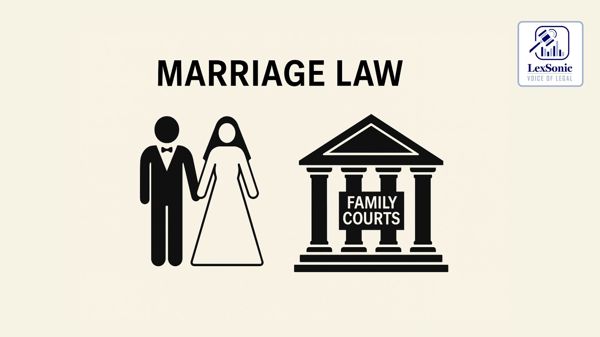A Mother’s Struggle: Court Transfers Marriage Petition Amidst Hardship.
03 October 2024
Hindu Marriage Act >> Marriage Law
In a recent legal development in the matter of Sarita Rahul Sharma Sarita Santosh Nai v/s Rahul Udayraj Sharma, a Mumbai court has granted a wife’s request to transfer her ongoing marriage petition from Vasai to the Family Court in Bandra, citing significant challenges she faces in traveling with her young daughter. The case highlights the complexities of matrimonial disputes intertwined with the realities of parenting and financial hardship.
The Applicant’s Plea:
The applicant, a resident of Mahim, resides with her retired father, homemaker mother, two unmarried brothers, and her 15-month-old daughter. The child, born prematurely, requires constant medical attention, making the mother's caregiving responsibilities even more demanding. The court heard from Ms. Contractor, the advocate representing the wife, who detailed the struggles faced by her client. She emphasized the impracticality of traveling from Mahim to Vasai, a journey that often takes around eight hours, complicating the mother’s ability to attend court sessions without leaving her vulnerable infant behind.
Supporting her claims, the applicant presented medical records indicating her daughter’s health issues and her mother’s declining health, which further limits available support for childcare. The advocate argued that the emotional and physical toll of this commute was immense, not only due to the long hours spent traveling but also due to the stressful conditions of public transport.

The Respondent's Opposition:
On the other side, Mr. Tripathi, representing the husband, opposed the transfer application, suggesting that the wife should continue attending the Vasai court. He offered to cover her travel expenses, a gesture perceived by the court as insensitive given the wife’s situation. Mr. Tripathi referenced a Supreme Court decision (Shiv Kumari Devendra Ojha vs. Ramajor Shitla Prasad Ojha) where a transfer plea was denied under different circumstances. However, the court found this comparison inapplicable, as the current case involved the intricate dynamics of a mother’s caregiving obligations.
Court’s Decision:
After careful consideration, the court acknowledged the hardships faced by the wife, particularly the challenges of navigating crowded trains and buses while caring for her infant. The judge underscored the need to prioritize the welfare of the child, determining that transferring the case to Bandra would not only ease the mother’s burden but also ensure her presence at future hearings.
The ruling included a notable directive for the husband to pay exemplary costs of Rs. 1,00,000 to the applicant as a form of relief, given that he had not contributed to the child’s support and the mother’s financial difficulties. This decision was framed within the broader context of social equity, recognizing the disproportionate hardships borne by the applicant.
Conclusion:
This case serves as a poignant reminder of the intersection between legal proceedings and personal circumstances, particularly in family law. The court’s decision not only supports the mother’s right to a fair trial but also acknowledges the significant burdens placed on parents navigating the complexities of divorce and child-rearing. The transfer of the marriage petition reflects a commitment to justice that takes into account the practical realities of everyday life, especially for single mothers.
